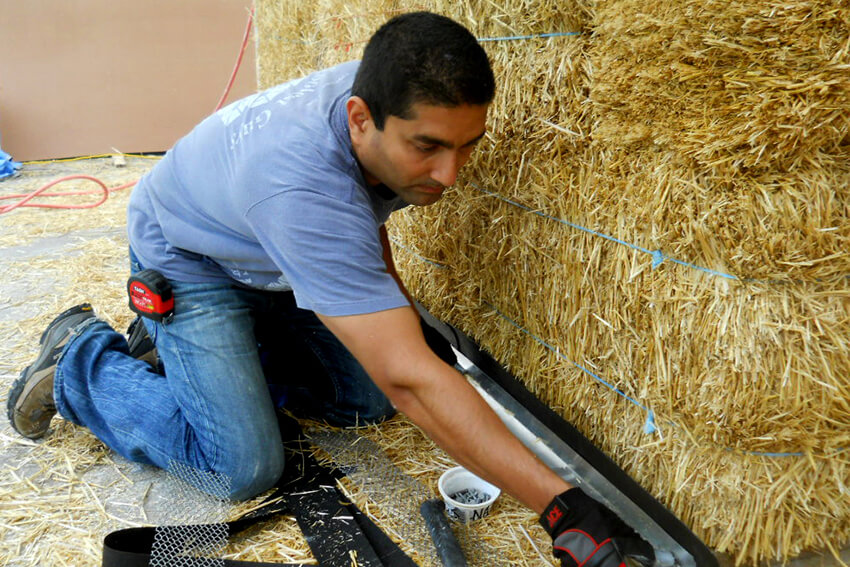School of the Built Environment founded with new director

The School of the Built Environment housed within the College of Technology, Architecture and Applied Engineering, comprises of the Department of Architecture and Environmental Design and the Department of Construction Management, two units of established histories, collaborations and synergies. Uniting design, technical and management education, the School of the Built Environment seeks to be a model of academic excellence with the overarching mission of creating exemplary places, structures and systems. The pedagogical values of the new school revolve around interdisciplinary collaboration and synergistic interaction between the fields of architecture and construction management. And, to that effect, the school is grounded on experiential education, integrated practice-collaboration and global engagement, including design innovation, leadership in outreach endeavors and immersion in the interdisciplinary learning environment.
Founded on a culture of excellence in pedagogy, research, practice and service, the School of the Built Environment is poised to achieve visibility and distinction at the local, regional and international levels. The mission and core-values of the school highlight the impact and significance of architectural practice and construction management on the user, the environment and the broader socio-economic context. This vision to provide a more holistic pedagogical model synergizing the realms of design, technical and management education, resonates deeply with a “systems thinking” approach – one that is deeply rooted in a multi-disciplinary education centered on a critical approach to integrative design, entrepreneurial thinking, creative problem solving, effective management practices and environmental stewardship.
Beginning spring semester 2018, Dr. Arsenio Rodrigues is poised to take on the leadership reins of the School of the Built Environment in the capacity of director. Rodrigues previously served in the capacity of director of the architecture program, including assistant dean of the School of Architecture at Prairie View A&M University in Texas. He received his professional B.Arch. degree from Goa University (India) and M.Arch. and Ph.D. degrees from Texas A&M University. He maintains LEED AP (Leadership in Energy and Environmental Design Accredited Professional) Certification with US Green Building Council, including EDAC (Evidence-Based Design Accreditation and Certification) with the Center for Health Design. He also holds the CHSD (Certificate in Health Systems and Design) from TAMU, and is currently NCARB (National Council of Architectural Registration Boards) certified. He is a registered architect in India (Council of Architecture) and a registered architect in the State of Texas. In 2017, Rodrigues was designated a Japan Studies Institute Fellow by the American Association of State Colleges and Universities.
Rodrigues maintains a wide range of teaching expertise including Architecture Design, Structural Systems, Theory of Place-making, Sustainable and Zero-Energy Design, Design Foundations, Design Communications and Photography-Digital Imaging. His research interests lie in the theory of sustainable design and sacred place-making. In conjunction with his research interests, he has presented peer-reviewed research papers at several national and international conferences and symposia, including publications in peer-reviewed journals. Over the years, he has been invited to present his work and research at several institutions and has served in the capacity of associate editor for peer-reviewed journals. Rodrigues is the recipient of more than thirty-six scholarships, fellowships, grants and awards. His teaching and direct involvement with students in the classroom has resulted in over twelve student competition awards at the regional and national level.
In terms of leadership aspirations for the new school, Rodrigues will focus on the following core initiatives:
- Innovation and expansion of programs in the school
- Growth of endowment and scholarship funds for the school
- Development of faculty as notable leaders in teaching, research and service
- Increasing student diversity, including competitiveness of admissions
- Investing in and creating a synergistic and leading-edge learning environment
- Highlighting and providing visibility for the school at the regional, national and global levels
- Development of students as leaders in the profession and industry
- Cultivating and fostering a culture of holistic education in terms of student experiences at BGSU
Updated: 02/01/2021 10:59AM
